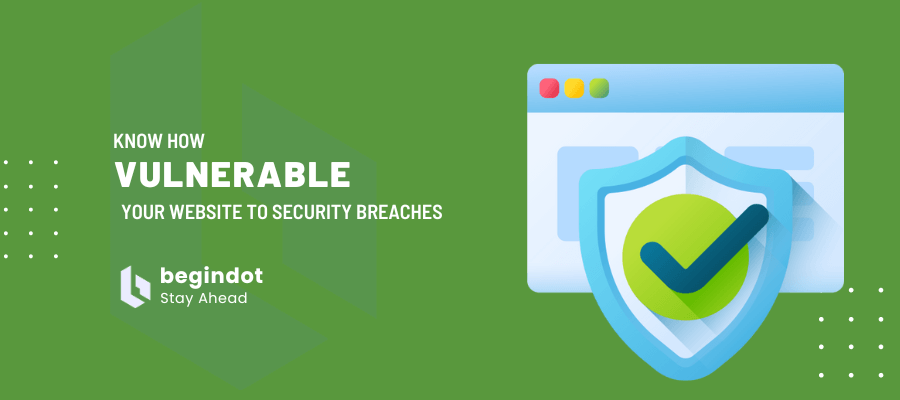No website can afford to be in the dark about the level of security it has in place. This is because a secure site forms the backbone of any online business or brand reputation.
At its core, website security offers protection for both your platform and your users’ data against potential cyber threats. In essence, it provides cover for things like sensitive consumer information stored on-site from hackers who might be looking to exploit this data for unethical purposes.
As a result of all this, gaining basic knowledge about website security can help you build trust with your audience while ensuring smooth operation of your site.
So let’s talk about the things that matter most in this context, and what vulnerabilities you need to root out and eradicate in your own site.
Common Types of Security Breaches Affecting Websites
There are various ways in which your site can be compromised, so here are the main exploitative issues you need to be aware of:
- Malware: This is malicious software planted by hackers into your site’s code and includes things like viruses, worms, ransomware, and spyware.
- DDoS attacks: These are attempts to make an online service unavailable by overwhelming it with traffic from multiple sources.
- SQL injection: Here, attackers use harmful SQL codes through a form on the website where users input data.
- Cross-site scripting (XSS): This involves injecting malicious scripts into websites viewed by other users which then run within their browsers allowing potential access to sensitive information.
Understanding these threats will allow you to establish better preventive measures for securing your online property.
You can also test out any measures you implement using Intruder, which is one of a number of modern tools that is capable of automating penetration testing. This helps you have confidence in any security setup.

Identifying Your Website’s Vulnerabilities
To protect your website effectively, you must first identify its potential weaknesses. Several areas could be prone to security breaches:
- Outdated software: Failing to update your site’s content management system (CMS), plugins, or applications can leave you exposed to newer types of attacks.
- Weak passwords: Simple or shared passwords across multiple sites can make it easy for hackers to gain unauthorized access.
- Lack of SSL certificate: Without an SSL certificate, data transferred between user browsers and your server is not encrypted and thus vulnerable to interception by cybercriminals.
By regularly checking these vulnerabilities and addressing them in time, you’ll significantly increase the security level of your site while reducing the likelihood of experiencing damaging breaches.
Proactive Steps to Safeguard Your Digital Property
Actively protecting your website from potential security breaches involves several steps:
- Regular updates: Always ensure that the software you use for your site, including the CMS, plugins, and themes, is up-to-date.
- Password hygiene: Practice using strong passwords and change them periodically. Additionally, consider implementing two-factor authentication (2FA) for an extra layer of security.
- Use an SSL certificate: Make sure all data transferred from and to your site are encrypted with an SSL certificate.
- Backup regularly: Have regular backups of your website stored in secure locations so you can recover quickly if a breach occurs.
Adhering to these practices consistently means you’ll create a robust defense against cyberattacks on your website.
Advanced Tools and Techniques in Website Protection
Aside from proactive steps, leveraging advanced tools and methodologies can enhance your website’s security further:
- Security plugins: These provide real-time monitoring for malware detection, spam protection, firewall setup, amongst others.
- Use of CAPTCHA: This prevents abuse by automated bots, which is an effective measure against brute force attacks.
- Web Application Firewalls (WAF): A robust WAF provides a shield between your site and the internet. It helps filter out malicious traffic before it reaches your server.
Involving professionals to conduct regular security audits is also a good idea as they can evaluate current safety measures critically and suggest improvements backed by industry best practices.
Technological advancements will continue fostering cybersecurity enhancements, so staying updated on these tools will help safe-guard your digital property effectively.
The Bottom Line
Every website is vulnerable to security breaches. The trick is to know where yours has its weak points, and do what you can to address them. This will set you on the path to protecting your site and its users more effectively going forward.





